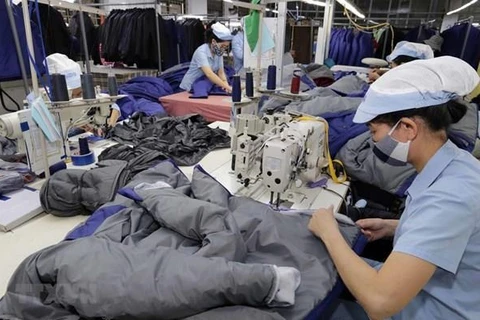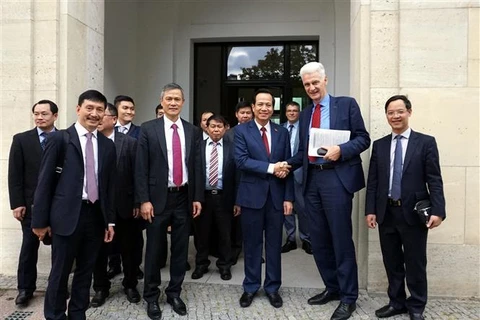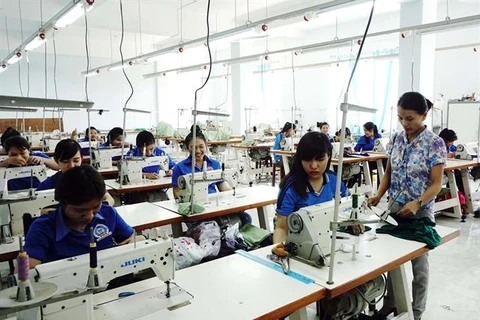 Prime Minister Nguyen Xuan Phuc (front, third, right) visits an exhibition on the sidelines of the forum on vocational training in Hanoi on November 16 (Photo: VNA)
Prime Minister Nguyen Xuan Phuc (front, third, right) visits an exhibition on the sidelines of the forum on vocational training in Hanoi on November 16 (Photo: VNA) Hanoi (VNA) – The country’s biggest-ever forum on vocational training took place in Hanoi on November 16 with a focus on ways to promote Vietnamese labourers’ skills.
Addressing more than 1,500 participants, Minister of Labours, Invalids and Social Affairs Dao Ngoc Dung said in the next 10 – 15 years, about one-third of current occupations will change under the impact of the Fourth Industrial Revolution, information technology, robot, automation, and artificial intelligence. About 40 percent of labourers around the globe will not have skills necessary for their jobs when robots replace human.
Therefore, making changes, especially in labour intensive industries like textile-garment, footwear and electronics, is an urgent need, he noted.
In his speech, Prime Minister Nguyen Xuan Phuc repeated his recent statement at the National Assembly’s session that resources for national development are not forests or seas but the nearly 100 million Vietnamese people.
He said over the last 30 years, the expansion of population and workforce has been an important driving force for GDP growth. However, since 2013, the size of Vietnam’s labour force has begun to approach its limit compared to the size of the economy. Therefore, raising productivity plays a decisive role in economic growth and economic restructuring.
PM Phuc noted expanding the scale and improving the quality of vocational training form the decisive factor in creating skilled human resources, which are critical to boosting productivity. In that work, businesses’ participation is important to align training curricula with the economy’s demand.
The Government leader pointed out that although Vietnam has the third largest population in ASEAN, after Indonesia and the Philippines, the percentage of trained labourers in the country is just above 25 percent, equivalent to one-third of the rates in the Republic of Korea, Taiwan (China) and Singapore. In many countries, this figure is 50 percent.
Despite certain improvements, vocational training has yet to meet the market’s demand, the PM said.
According to him, to sustain and promote economic growth and strengthen national competitiveness, it is necessary to reform and improve the quality of vocation training, and this process needs to be associated with businesses and the labour market.
PM Phuc stressed that only when vocational training in Vietnam can catch up with the level in developed nations in the region and the world, can the country move up in global value chains.
He also asked the Ministry of Labour, Invalids and Social Affairs to design a social agreement with the participation of schools, businesses and the Government in vocational training so as to create highly skilled human resources for the economy./.
VNA
























